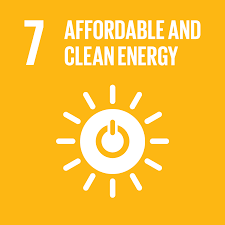
In a country grappling with the multifaceted challenges of climate change, environmental degradation, and energy insecurity, Zimbabwe stands at a critical crossroads in its energy transition journey.
The nation’s pursuit of Sustainable Development Goal 7 (Affordable and Clean Energy) is increasingly urgent, particularly given its rapidly growing population and expanding economy.
To achieve and surpass its national energy generation targets, it is essential to raise awareness and foster participation among citizens. Citizen inclusivity in renewable energy initiatives is not just a desirable approach, it is a critical accelerator to achieving sustainable development.
Uniting citizens for national progress
To depolarize its citizenry and build a unified national vision, Zimbabwe must promote a "country first" mindset, where people prioritize collective progress over partisan interests. A united citizenry can attract foreign direct investment (FDI) and create a conducive environment for economic development. This effort must be spearheaded by the government and supported by all progressive stakeholders across sectors.
The ongoing efforts by the Government of Zimbabwe to promote inclusivity, national unity, and participatory development are commendable. The spirit of togetherness and shared responsibility can significantly increase power generation capacity to meet national and regional energy demands.
Enabling a just and inclusive energy transition
To drive an inclusive energy transition, the country must maintain its momentum in developing climate-friendly fuels, continue implementing investor-friendly policies, and promote the growth of a vibrant private sector. A citizen-driven inclusivity agenda will require greater government leadership and collective action from all sectors.
- Zimbabwe is closed for business, says think tank
- New perspectives: Reconfigure Zimbabwe’s economy for recovery
- Zimbabwe is closed for business, says think tank
- New perspectives: Reconfigure Zimbabwe’s economy for recovery
Keep Reading
Zimbabwe has set an ambitious target of generating 15,000 megawatts of electricity by 2035. Achieving this milestone will require coordinated strategies, innovative financing models, and enhanced cooperation among the government, private sector, civil society, and the general public.
Scaling up green finance and investment
Massive scaling up of green finance is necessary to meet the estimated cumulative investment need of approximately US$16 billion between 2025 and 2035. Achieving this will depend on unprecedented levels of collaboration, strategic planning, and synergy between all stakeholders.
Furthermore, it is essential to integrate energy transition considerations into policy and strategy at every level, starting from project inception. This dual understanding between the private and public sectors will ensure alignment and long-term sustainability.
Addressing structural challenges in the energy sector
Despite notable economic resilience in the mining, construction, and agricultural sectors, Zimbabwe continues to face substantial hurdles in the energy sector. These include:
-Volatile international commodity prices;
-A financially constrained electricity distribution network;
-An aging power generation infrastructure;
-Heightened energy security risks.
The Government of Zimbabwe, however, has remained committed to addressing these issues through policy reform, infrastructure development, and regional cooperation. Significant strides have been made in knowledge transfer across multiple domains of the energy value chain, reinforcing the foundation for a more inclusive transition.
Towards green transmission grids and carbon neutrality
As the country continues to develop and construct new electricity generation plants, there is an urgent need to adopt plausible and cost-effective strategies aimed at achieving carbon neutrality. The expansion of green transmission grids must be prioritized to ensure the sustainable distribution of clean energy.
In parallel, Zimbabwe should strengthen its efforts to attract global private sector capital into clean energy solutions. This requires the establishment of favorable industrial policies for green technologies and the creation of new economic opportunities for local and international investors.
Conclusion
Citizen inclusivity in renewable energy generation is not a mere policy recommendation, it is a necessity for sustainable development and national progress. By actively involving its people, fostering unity, and embracing collaborative innovation, Zimbabwe can accelerate its journey toward SDG 7.
The road ahead will demand visionary leadership, technological adaptation, and robust financial mechanisms. But with a united effort from the government, private sector, and its citizens, Zimbabwe can secure a cleaner, more inclusive, and energy-resilient future.
- Engineer Edzai Kachirekwa can be reached on [email protected]











